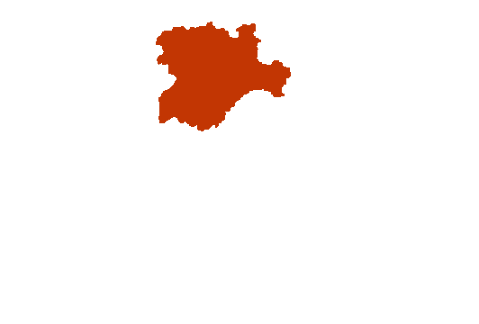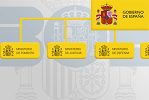Buying real estate. Notarial offices and property registers
Content
Advance information on buying a house
Before buying a property, it is very important to verify its legal status in terms of its features, owner and charges.
The property registers give you this information through a ‘nota simple’ land register report, which can be requested in person at any registry or online via the Spanish Association of Registrars website . It can also be requested in English or in any of the official languages in Spain.
The property registers give you this information in the form of a ‘simple registry note.’ You can apply for this in person at any registry or online via the portal of the Spanish Association of Registrars. You can also apply for a note in English.
The simple note about a property contains the following information:
- Ownership details.
- Any charges or lien on the property (mortgages, attachments or other charges).
- Whether it is subject to any special property system.
- Whether it is up to date with payments of condominium contributions and property tax.
- Whether it is subject to any restrictions.
-
If it is coordinated with Catastro.
-
Whether it is official affordable housing (viviendas de protección official – VPO) or eligible for a subsidised loan (precio tasado – VPT)
Requesting information about a property
For the purpose of requesting information about a property, you may request:
- an ordinary ‘nota simple’ report;
- a ‘nota simple’ information update: informing the person concerned that a document has been submitted to the registry after they have requested the information;
- a location ‘nota simple’: indicating the assets that a natural or legal person has registered in the land register in Spain.
If no data is available to identify the registered property
If no data is available to identify the registered property, it is also possible to locate the property by consulting the geoportal https://geoportal.registradores.org/home .
If purchased off-plan
If you are buying an off-plan home, the physical and legal situation is more complex to verify. Again, the registers play an important role in the checks prior to signing the contract.
- Whether the developer exists and its agent is entered on the commercial register (you can apply for an information note via the portal of the Association of Registrars,
 commercial register section).
commercial register section). - Whether the land to be built on is entered in the developer’s name in the relevant property register.
- Whether the town council has authorised the construction, and a licence is held.
- If you make any payment, you may have to supply proof that you transferred it to a specific account usable only for the construction costs.
- If the house has been entered on the register, the entry will state:
- that the work has been completed as initially described;
- that the technician can prove that the work conforms to the permit;
- that insurance has been taken out against possible building defects;
- that the building dossier [libro del edificio] has been filed;
- building and first occupancy permits;
- energy efficiency certificate;
- the geo-referenced coordinates of the site show its exact location.
Mortgage loan and deed of sale of the property
Nowadays it is usual to apply for a mortgage loan to buy a house.
A mortgage only exists when it is in the property register. It enables the lending entity to demand the sale of the house if the buyer does not meet the loan repayment terms.
We must bear the following in mind when applying for a mortgage loan:
- Generally the deed of sale is completed, and the property handed over, at the same time. The seller, buyer, and bank representative authorised to sign the contract go to a notary's office to do this.
- If there is already a mortgage on the property by the former owner or by the developer who built it, the buyer is not obliged to take over that loan. Instead, the buyer may request cancellation of the previous mortgage and take out a new loan from the financial institution of the buyer’s choice. They can also take over the previous mortgage but only if they wish to do so.
- The general rule is that the deed of sale of a house is completed as a public deed at a notary’s office, in accordance with the statutory requirements. The notary's involvement authenticates the content of the deed.
- The seller of the property remains liable for any hidden defects of the house, even if they were not aware of them, and the buyer may withdraw from the contract or deduct a proportion of the price, determined by valuers.
- The developer, builder and building technical management are also answerable for damage caused by structural defects for a period of ten years; for damage affecting the activity, for three years; and for flaws in the finish, for one year.
- Once the deed of sale of the house and the mortgage have been signed (if a mortgage was applied for), and the taxes have been paid, it is entered on the property register. Entry on the register protects the buyer, who is considered the sole and real owner from now on. This gives the buyer legal protection against hidden charges, possible disputed possession of the house, etc. Against all such claims, the registered owner is the lawful and true owner of the dwelling.
- Once the deed of sale for the house and the mortgage have been signed and the taxes have been paid, the sale must be entered in the land register. Registration is voluntary but advisable. Registration protects the buyer, who is considered the sole and true owner from that moment, with legal protection against hidden charges, possible disputes over the possession of the property, etc. The buyer is the legal and true owner of the property in front of everyone.
- For the purposes of taking out a mortgage and for the consumer to better understand the binding conditions, Spanish law requires that a prior notarial act is signed stating that the buyer is duly informed of the mortgage conditions.
For more precise information on how to buy a house in Spain, we recommend you refer to and read the guide![]() published by the Association of Property Registrars.
published by the Association of Property Registrars.
Information for each Autonomous Community















Andalucía Aragón Asturias, Principado de Balears, Illes Canarias Cantabria Castilla y León Castilla-La Mancha Cataluña Ciudad de Ceuta Ciudad de Melilla Comunitat Valenciana Extremadura Galicia Madrid, Comunidad de Murcia, Región de Navarra, Comunidad Foral de País Vasco Rioja, La










